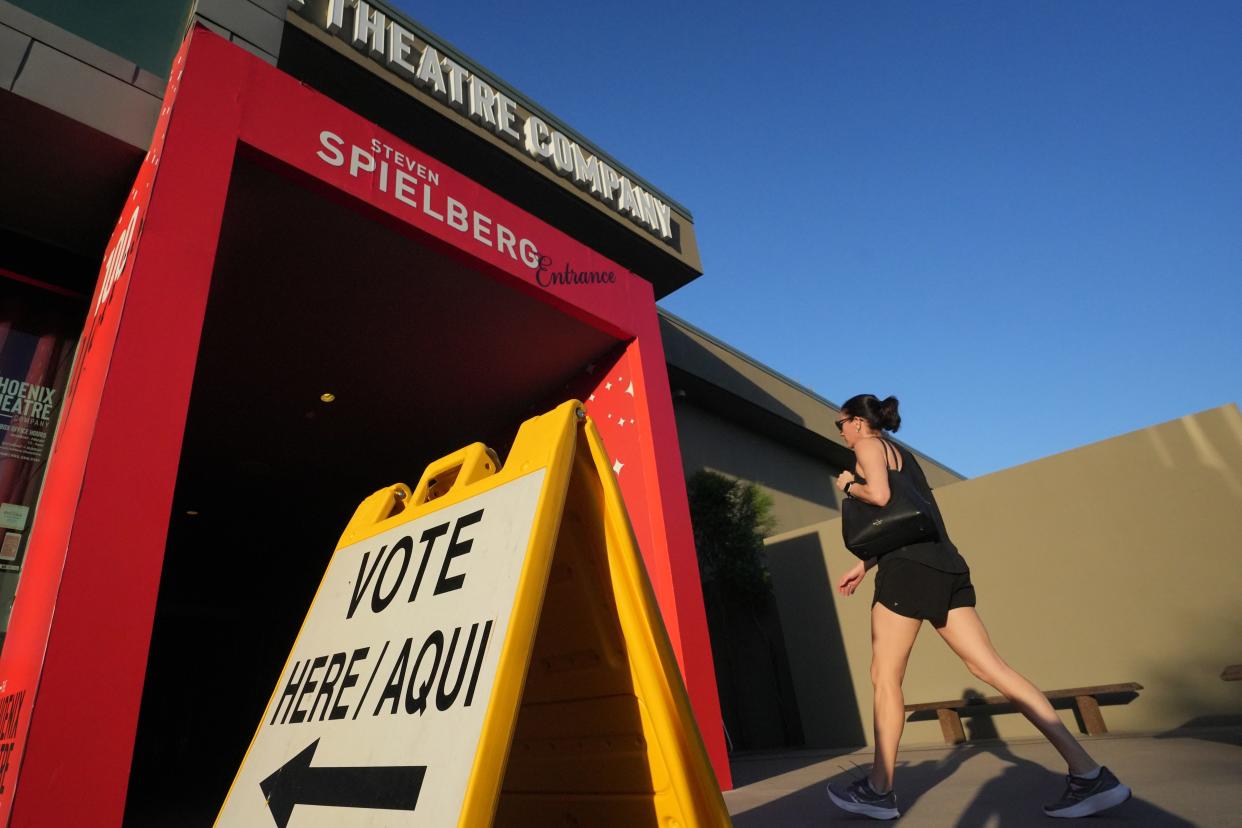Supreme Court explains why it kept election measure off November ballot, suggests changes to law

The Arizona Legislature should consider sharpening the language for how citizen initiative petitions are evaluated to avoid the confusion that derailed a wide-ranging elections initiative last year, the state Supreme Court said.
The recommendation comes at the tail end of an opinion, issued Monday, that explains the court's decision 11 months ago to bar the Free and Fair Elections Act from the 2022 ballot.
That 5-1 decision ended the campaign for the initiative, sparking anger and incredulity from the proponents of a measure that had gathered more than twice as many voter signatures as needed to qualify for the ballot. The initiative proposed a number of changes to elections procedures, reversing restrictions imposed by the Legislature, restoring the permanent Early Voting List and revamping campaign finance.
That anger resurfaced Monday, when the court released its logic in a 19-page opinion authored by Justice Bill Montgomery.
“They are pointing out the fact that the law is not fair," attorney Jim Barton said of the six justices. Barton represented the progressive organizations sponsoring the initiative.
He cited a passage in the opinion that he said "blew me away" because, in his view, it undermined the court's decision to block the initiative from the ballot.
In that passage, Montgomery refers to one method that was used to disqualify voter signatures and wrote, "We acknowledge that ... this method seems to permit 'double counting' of invalid signatures." But, Montgomery continued, a 1990 court opinion made it clear that such double counting — actually, allowing an invalid signature to get deducted twice from a batch of petitions — is allowed by law.
"Nevertheless, then as now, 'such deduction appears clearly mandated by the statute'," Montgomery wrote, quoting from a 1990 opinion.
Double counting creates a higher "invalidity rate," which is used to determine how many voter signatures should get tossed out in a random sample of ballots. In close cases that could make the difference between qualifying for the ballot or falling short.
Citizen initiatives are routinely challenged in court, with opponents scrutinizing whether backers gathered enough valid voter signatures and followed detailed steps for signing a petition.
The court battle over the Free and Fair Elections Act was epic, by Arizona standards, with a lower court judge first allowing the measure to advance to the ballot, then a day later, reversing his decision. The legal fight played out under tight timelines dictated by the deadline to print ballots for the fall election.
Montgomery ended the court's majority opinion by stating that "it would be of great utility" for the Legislature to create an "explicit process" to guide challenges to citizen initiatives.
Read the opinion: Arizona Supreme Court's view on initiative petitions
Justice Timmer: 'This is a mistake'
Justice Ann Timmer, the lone dissenter, agreed that the law permits a double count of invalid signatures, a calculation that could increase the possibility of disqualifying an initiative. Actually, she wrote, the law allows for two methods for determining whether an initiative has enough valid signatures.
But in this case, the court intermingled the two methods, "creating a hybrid calculation method that is unsupported by law," she wrote. "I see no reason to permit plaintiffs to take advantage of this counting flaw, and the majority offers none."
The Free and Fair Election Act should have gone on the ballot, Timmer wrote. "In my opinion, it was a mistake," she wrote of last year's decision to remove the initiative from the ballot.
She agreed with her colleagues that the Legislature should create a "clear procedural path" for challenging citizen initiatives.
"The stakes are high as getting it wrong would divest the voting public of its valuable right to self-govern," Timmer wrote.
Change unlikely to happen soon
Barton said he has little faith the current Legislature would heed the court's advice, noting the GOP majority has passed a number of laws that seek to rein in the initiative power.
"Eventually, people who support democracy will take over the Legislature," Barton said. When such people in charge, he said, they will remedy the statute and its confusing directives on how to vet whether an initiative has enough valid signatures to make the ballot.
Attorney Kory Langhofer, who represented the parties challenging the elections act, said the issue of double counting an invalid signature wasn't a factor in their win last year.
His clients would have won whether the court ruled that all, or just some, of the challenged signatures were invalid, Langhofer said. Ultimately, the court allowed a challenge to all of the signatures.
“That was the right decision and that was the right outcome," Langhofer said.
The lawsuit was led by the Free Enterprise Club, which is no stranger to ballot challenges. The club, a nonprofit organization that does not have to identify its donors, was joined in the lawsuit by the Honest Elections Project and RITE (for Restoring Integrity and Trust in Elections), an organization headed by former Trump White House counsel Derek Lyons.
Reach the reporter at maryjo.pitzl@arizonarepublic.com or at 602-228-7566 and follow her on Twitter @maryjpitzl.
Support local journalism. Subscribe to azcentral.com today.
This article originally appeared on Arizona Republic: AZ Legislature should change ballot measure law, Supreme Court says

